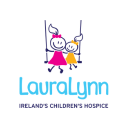Resilience of Families in the Face of the Loss of a Child
By Aidan McKiernan, Principal Specialist Clinical Psychologist, LauraLynn, Ireland’s Children’s Hospice
The death of a child is one of the most profoundly painful losses a family can endure. The initial grief can feel overwhelming because, in addition to the extremely painful physical separation from the child or young person, the roles, routines and relationships in the family are suddenly upended. And yet, somehow, families carry within themselves inner resources that enable them to reorient their lives – not to “move on” or “get over” - but to adjust to a changed rhythm.
With support and the passage of time (realistically in the case of the death of a child or young person, the timeline is some years), families do return to a level of functioning and well-being that is similar to life before the child’s death, even though the absence is always felt. For some families, the loss can become a point of transformation, a painful, unbidden learning occurs that helps them to develop a deeper understanding of what matters most in life (an understanding that the rest of us can spend much of our lives oblivious to). A re-evaluation of priorities can follow, and a renewed appreciation for the relationships that are important and sustaining. Through these processes, families can discover strengths they did not know they possessed.
Because self-compassion soothes emotional pain and helps to regulate strong emotion, families benefit from intentionally practicing kindness towards themselves. In the first place, this means allowing oneself to grieve at one’s own pace and in one’s own way. The business of compassion may also involve the family finding a way to extend compassion towards others (by practising patience when others interact with them in a clumsy way, for example), because this patience is protective of the relationships that the family lean into.
Making space for grief is important also, as compared with continuously suppressing or avoiding: one or two breaths, acknowledging the physical sensations and feelings that are present, and returning to whatever is most relevant to the situation right now (boiling the kettle, showering, making a meal). Crucially, just as we benefit from acknowledging loss, so is it true that space away from the raw intensity of grief is important and necessary. Finding this balance is a life-long process.
Even when a child dies – even when a loss so major is experienced - connection, purpose, and joy are possible. It is reasonable and realistic to be hopeful that these things will be felt again, someday. But compassion comes first.
Memorial Gift Shop
View AllHand-carved Celtic Wall Hangings
Hand-carved in Ireland, each wooden piece has its own unique & poignant significance.
Ogham Wishes
Ogham writing is Ireland's ancient script. Hand-painted, stylish wall hangings. For indoor use.
RIP.ie Acknowledgement cards
Send heartfelt thanks to those who supported you during your time of loss with our beautifully pen written Acknowledgement Cards.


